Rockford Reserve vs Oaksmith Gold: Taste Notes and Price Comparison
2026-02-13
_1751618693.jpg)
In the last several decades, Indian whisky has changed remarkably. What was originally an association with cheap spirits has evolved into a highly regarded global category, much thanks to brands such as Amrut Distilleries. The "pioneer" of Indian Single Malt whisky, the Bangalore-based Amrut Distilleries, has ensured that Indian single malt still stands on the world map. If you are interested in the different types of Amrut whisky, their taste profile, and comparing city-by-city prices in 2025, then you are in the right place.
In this guide, you’ll discover:
Whether you’re a curious newcomer or a seasoned sipper, this article will help you navigate the world of Amrut with confidence and clarity.
Amrut Distilleries, a company founded in 1948 and steeped in post-independence India, started by producing rum and brandy for the domestic market. As India's economy grew, so did the distillery's ambitions. By the late 1990s Amrut had grown to make more than just local sales. With a deep respect for the traditions of dark-skinned Scotch-making and a valiant love for local barley, Amrut dared to take a risk, India’s first single malt whisky.
Later on, in 2004, Amrut launched its whisky into the UK Market. Critics weren't convinced; how could an Indian whisky go up against a tradition that has lasted centuries in Scotland? Whenever the critics tried it—the responses were phenomenal. Amrut Fusion was named by Whisky Advocate the third-best whisky in the world, and suddenly Amrut was on the world map.
Amrut is now exported to over 45 countries, with a loyal fan base from Tokyo to Toronto.
Let’s explore some of the most popular Amrut whiskies, each with its own signature flavor profile.
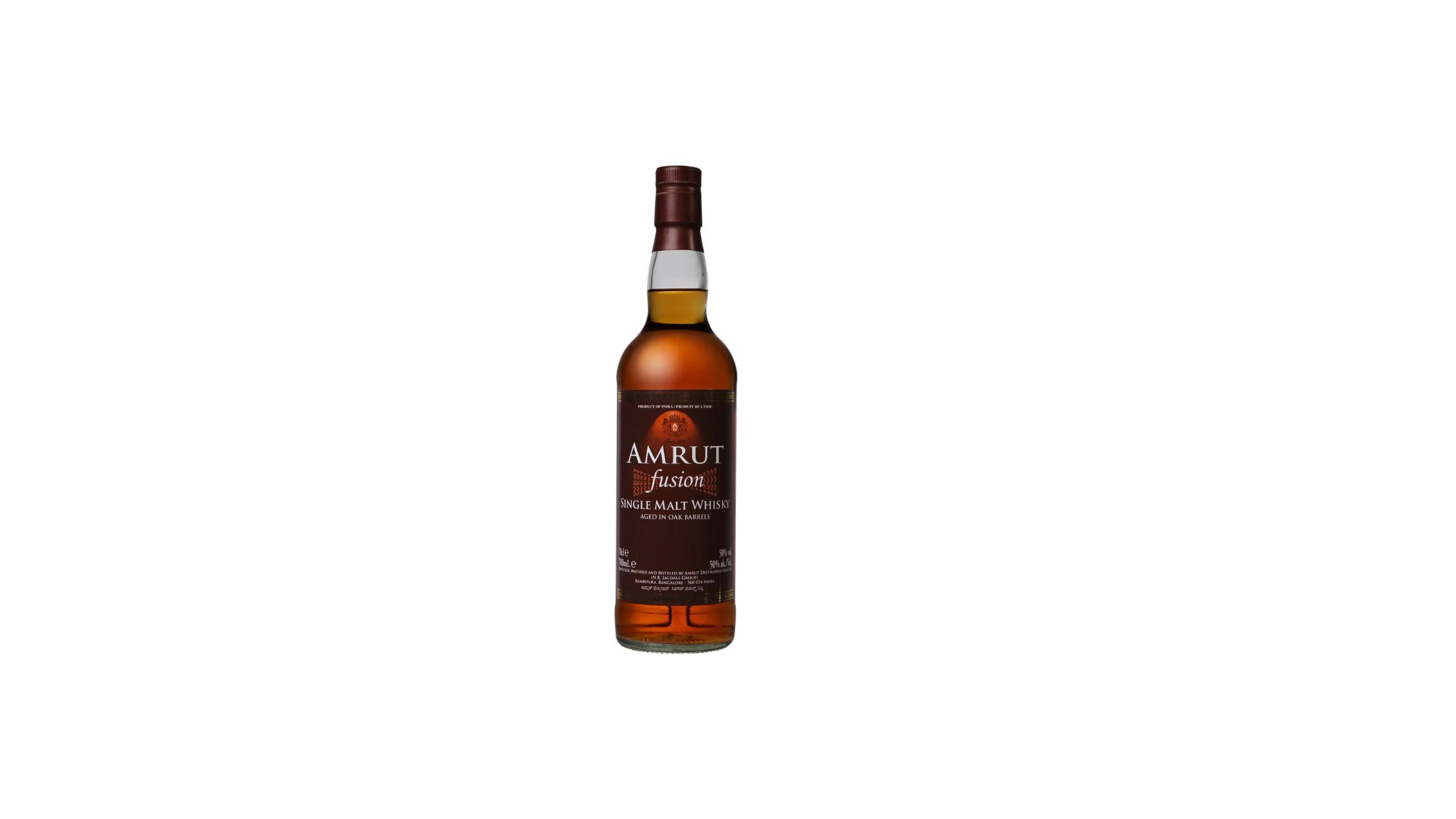
Type: Non-peated & peated malt blend
ABV: 50%
Profile: A masterful balance of Indian and Scottish barley. You’ll notice chocolate, vanilla, peppery spice, and gentle smoke. Smooth and complex, this one’s a crowd-pleaser.
Best for: Beginners and collectors alike. It bridges tradition and innovation beautifully.
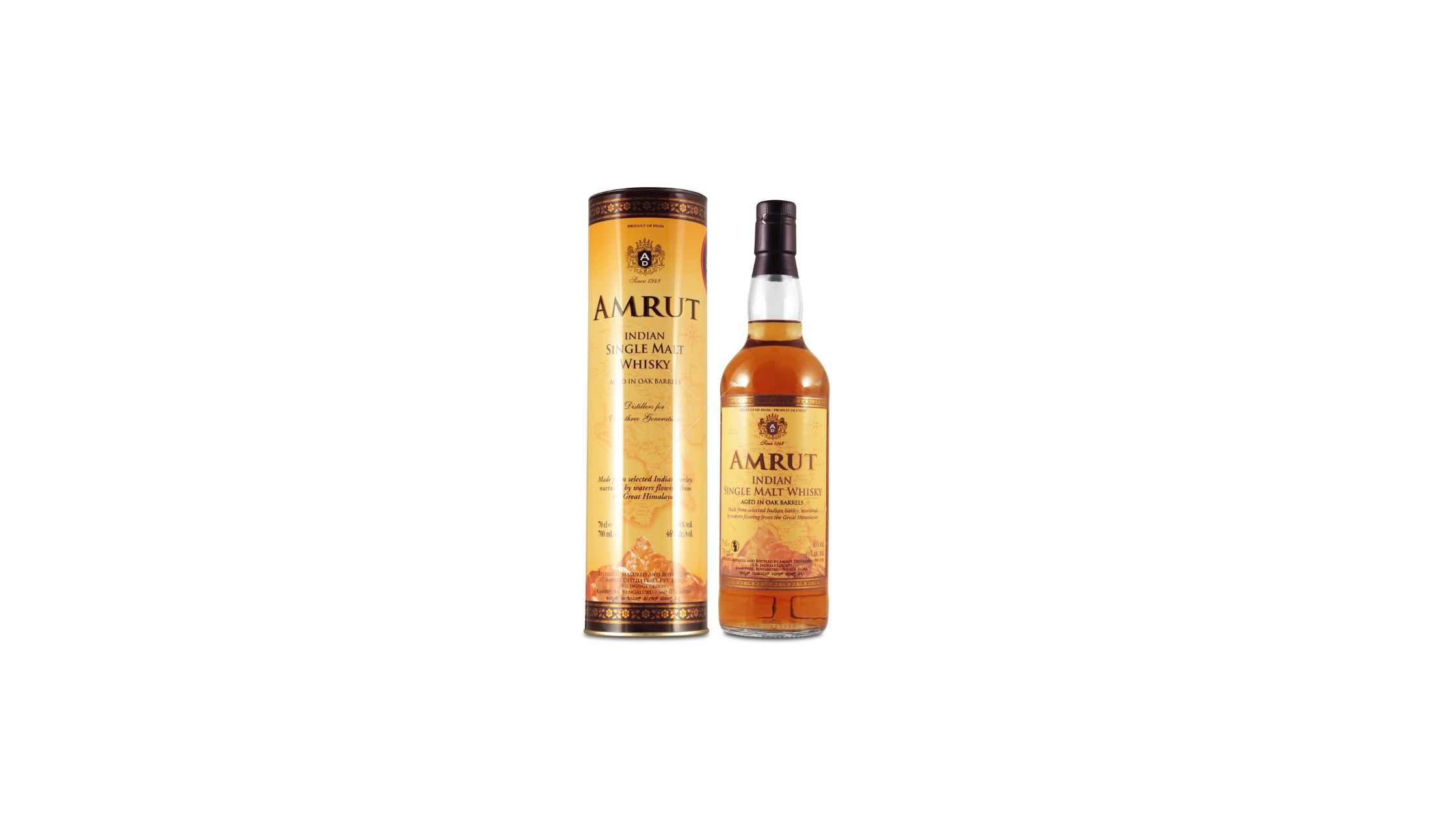
Type: Classic Indian single malt
ABV: 46%
Profile: Light, floral, and subtly spicy. Expect honeyed malt, green apple, and a touch of caramel. A clean, easy-drinking whisky with depth.
Best for: Those who prefer a milder profile without sacrificing quality.
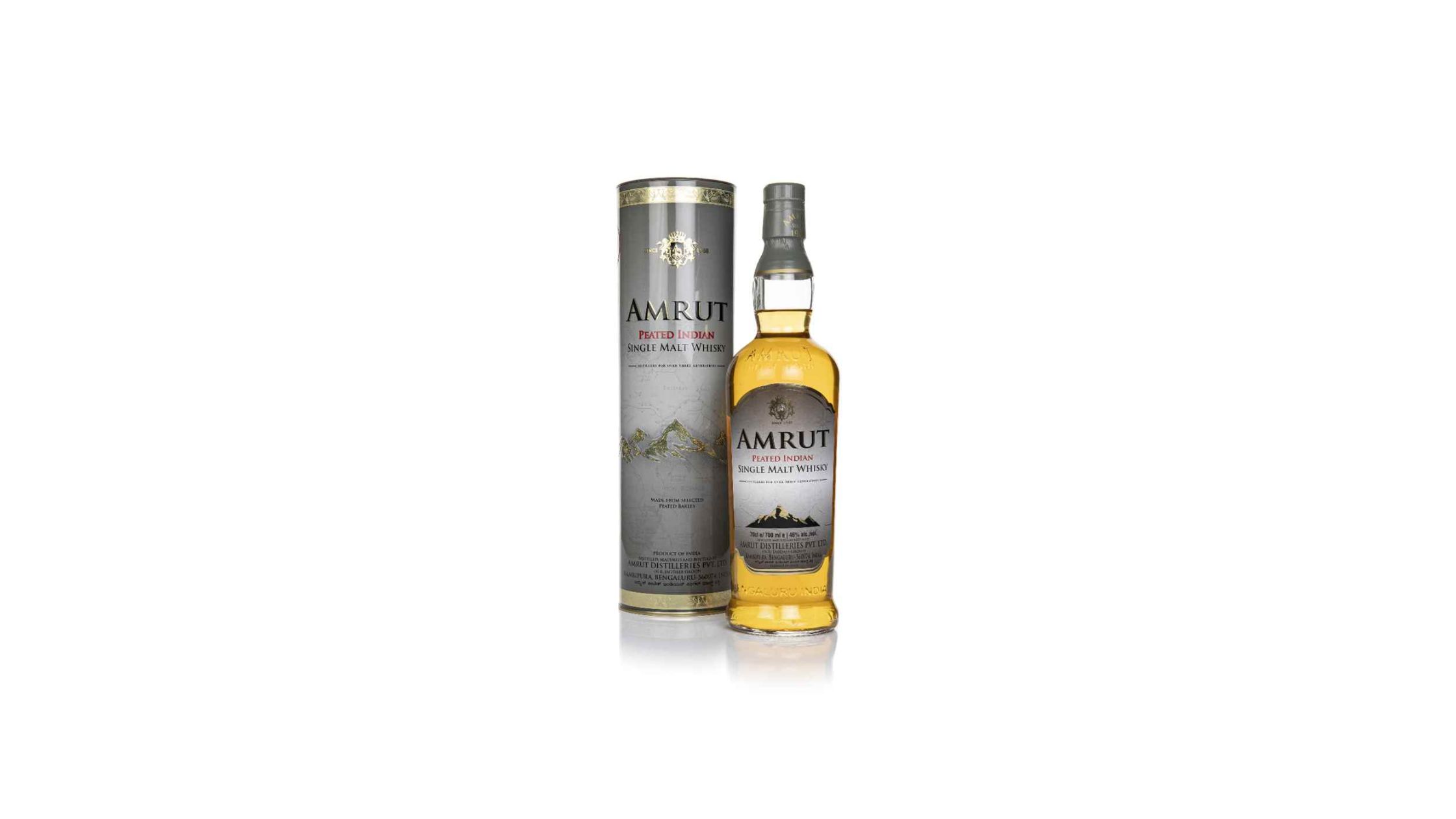
Type: Peated malt
ABV: 46%
Profile: Earthy smoke, toasted grain, and a bit of citrus. The peat is prominent but not overpowering—more Highland-style than Islay.
Best for: Scotch drinkers exploring Indian whisky for the first time.
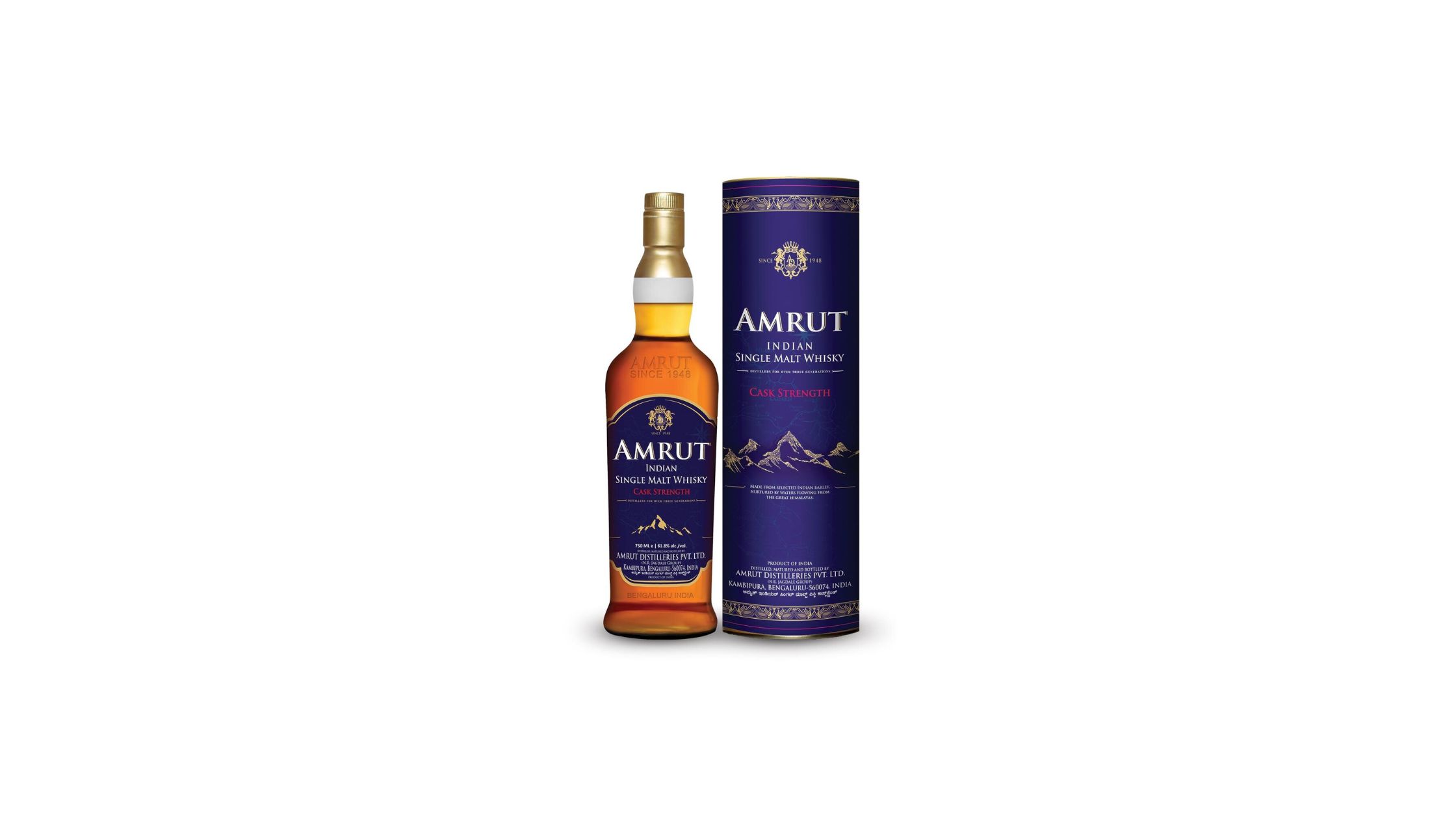
Type: Barrel-proof single malt
ABV: 61.8% (varies by batch)
Profile: Bold and powerful. Notes of dried fruits, dark chocolate, oak, and warm spice. Add a few drops of water to unlock deeper aromas.
Best for: Advanced whisky drinkers who enjoy high-proof expressions.
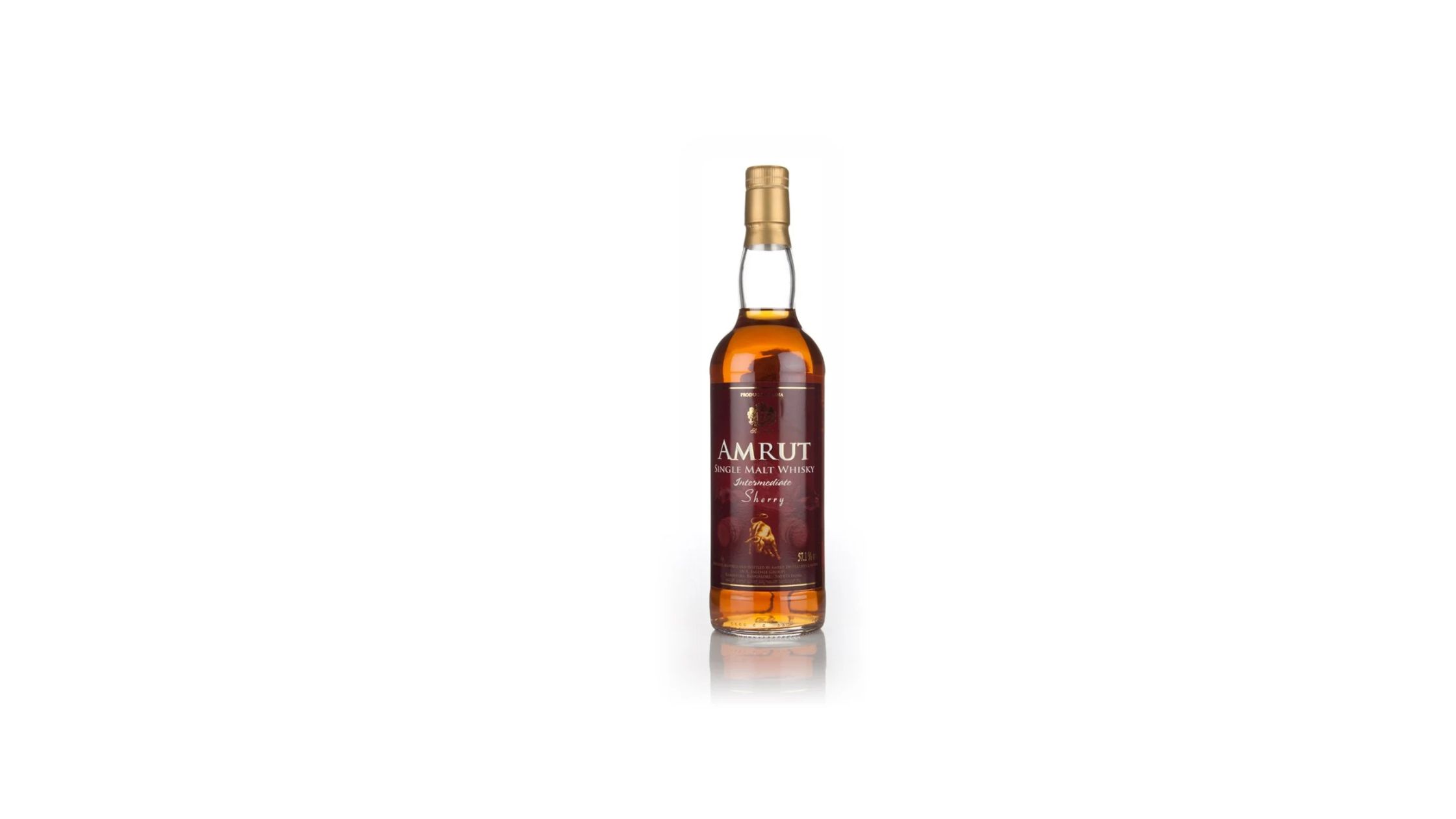
Type: Sherry cask finish
ABV: 57.1%
Profile: Rich and velvety with flavors of raisins, plum, toffee, and spice. Aged in both new oak and sherry-seasoned barrels, offering layered complexity.
Best for: Fans of sherry-aged Scotch or those who like dessert-style whiskies.
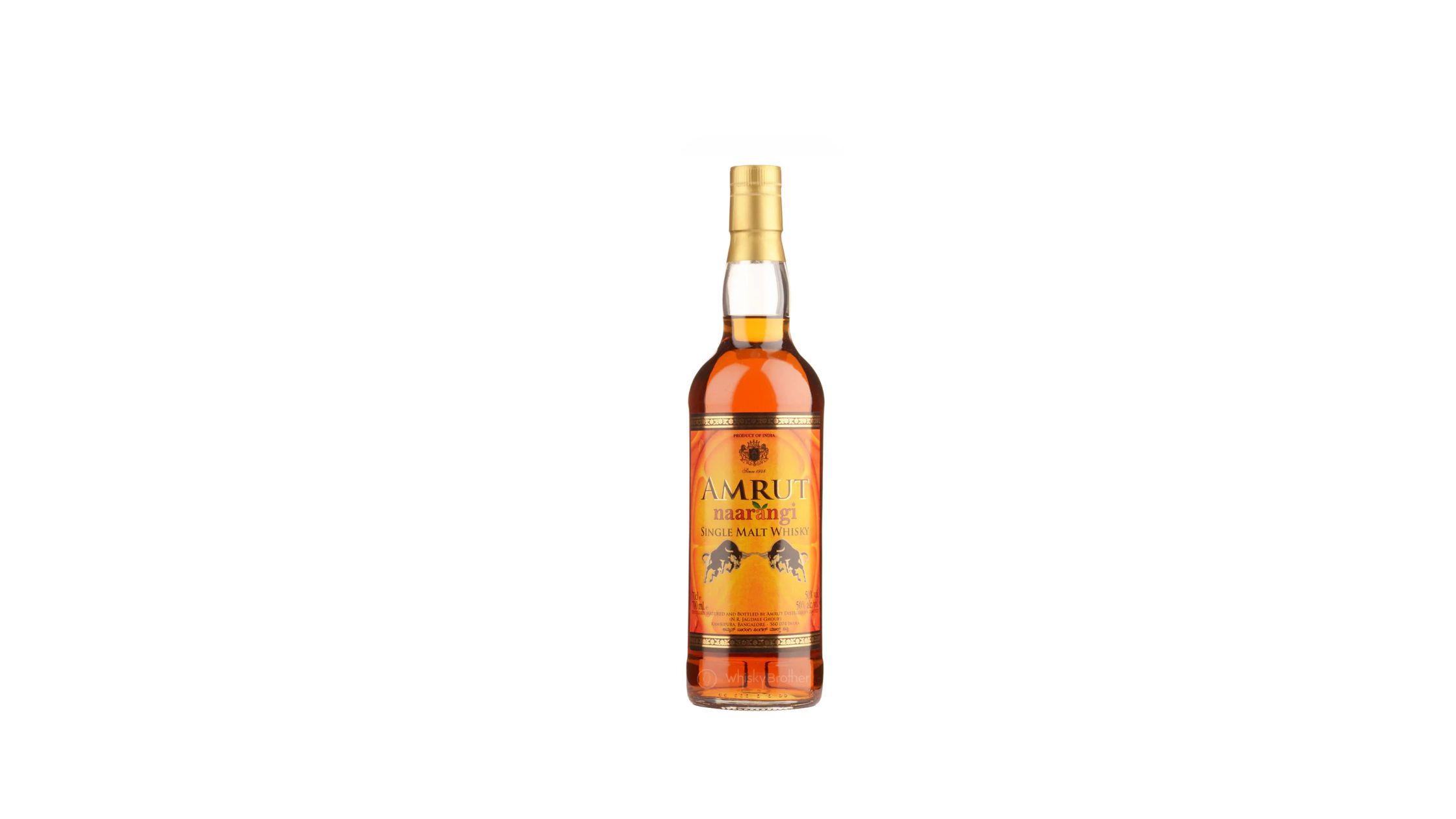
Type: Orange-zest flavored malt
ABV: 50%
Profile: One of the most unique whiskies on the market. Think orange peel, cinnamon, clove, and warm oak. Matured in wine and orange liqueur-seasoned casks.
Best for: Experimental sippers looking for something truly different.
.jpg)
Type: Luxury aged single malt
ABV: ~50–60%
Profile: Elegant and refined. Notes of antique wood, vanilla cream, dried fruit, and sweet smoke. Only a few hundred bottles are released per batch due to high evaporation rates in India’s tropical climate.
Best for: Serious collectors and connoisseurs. A rare Indian whisky aged over a decade.
Prices vary widely depending on state excise duties, local availability, and retail channels. Here’s a general comparison across three major cities:
| Amrut Whisky | Delhi (INR) | Mumbai (INR) | Bangalore (INR) |
| Amrut Fusion | ₹3,100 | ₹3,500 | ₹3,400 |
| Amrut Single Malt Classic | ₹2,700 | ₹3,000 | ₹2,900 |
| Amrut Peated Single Malt | ₹3,600 | ₹3,900 | ₹3,800 |
| Amrut Cask Strength | ₹5,200 | ₹5,700 | ₹5,500 |
| Amrut Intermediate Sherry | ₹6,000 | ₹6,400 | ₹6,200 |
| Amrut Naarangi | ₹6,800 | ₹7,200 | ₹7,000 |
| Greedy Angels 12 YO | ₹16,000+ | ₹17,000+ | ₹16,000+ |
Note: Prices are approximate and may fluctuate due to seasonal offers or availability.
Here's a quick guide to help you decide:
With rising popularity comes the risk of counterfeit products. Keep an eye out for these authenticity indicators:
If something looks off—such as unusual font, low pricing, or missing tax stamps—think twice before purchasing.
Inside the Amrut Distillery: Passion Meets Precision
Nestled in Bangalore’s outskirts, Amrut’s distillery is a blend of heritage and innovation. Unlike many Indian distilleries that rely on molasses-based spirits, Amrut uses 100% malted barley, sourced from Himalayan foothills.
Their team frequently experiments with sherry, rum, and wine barrels, creating one-off bottlings that often become collector’s items.
Fusion, Peated, and Naarangi top the list for their distinctive profiles. Fusion is the most internationally recognized.
All Amrut whiskies are produced and bottled in Bangalore, Karnataka.
That depends on personal taste. While Scotch has heritage, Amrut offers innovation and tropical complexity. Many critics have compared Amrut favorably to leading Scotch brands.
Due to India’s hot climate, even a 4-5 5-year-old Amrut can taste as rich as a 10-to 12-year-old Scotch. The Greedy Angels expression is one of the few that’s aged over a decade.
Yes, depending on your city’s regulations. Always ensure you’re buying from a licensed seller or government-authorized retailer.
Amrut whisky isn’t just a whisky brand but rather an embodiment of India’s craftsmanship, resilience, and ambition to make its mark globally. The range includes classic single malts to experimental bottlings, like Naarangi, and it displays that innovation doesn’t have to mediate away from tradition.
Sitting by the fire with an Amrut in hand or gifting a rare bottle to a friend, you’re a part of India’s whisky revolution.
Here’s to good spirits—crafted with care, aged with integrity, and enjoyed with wisdom.
For Regular Updates : Join WhatsApp Channel